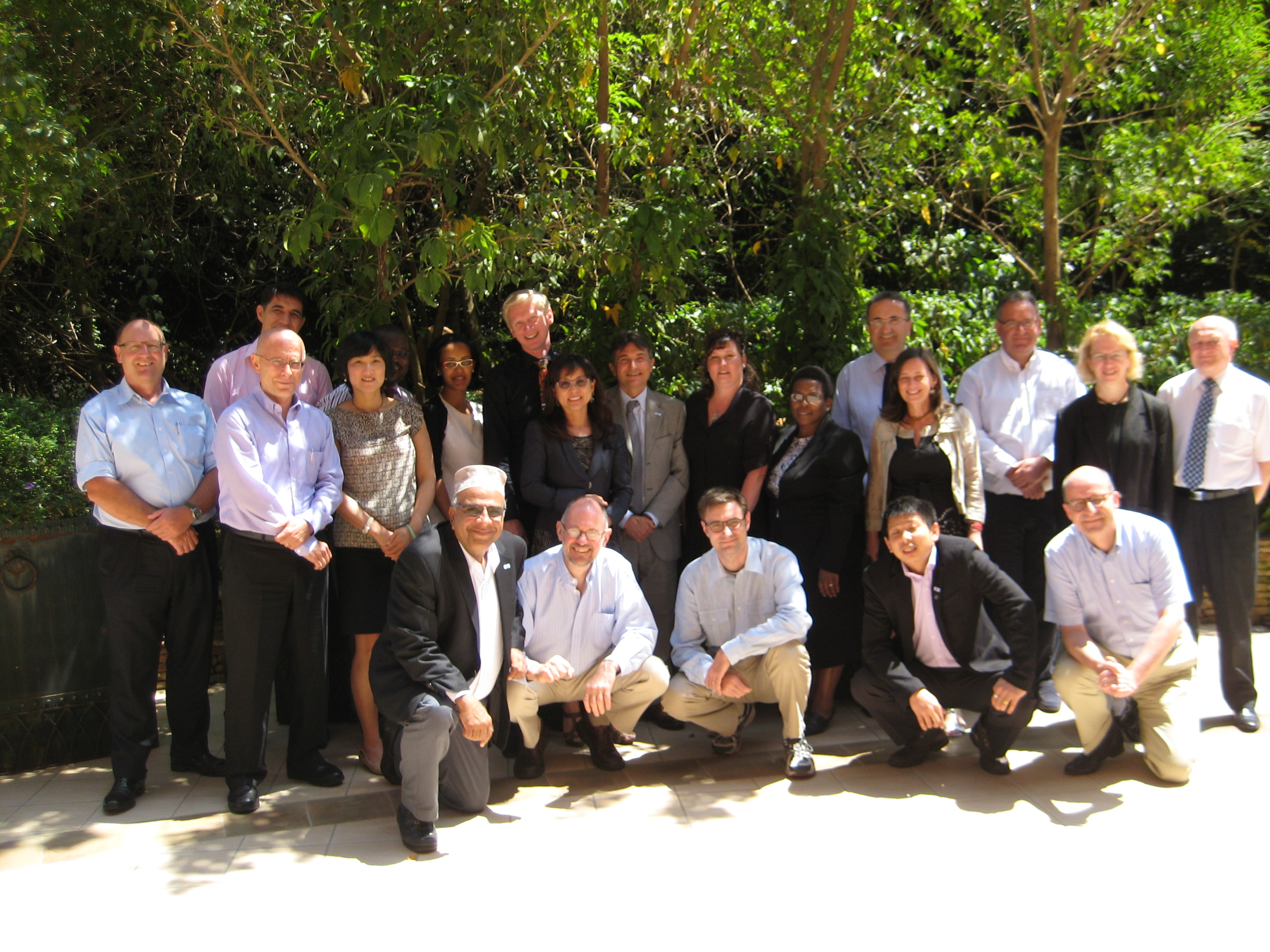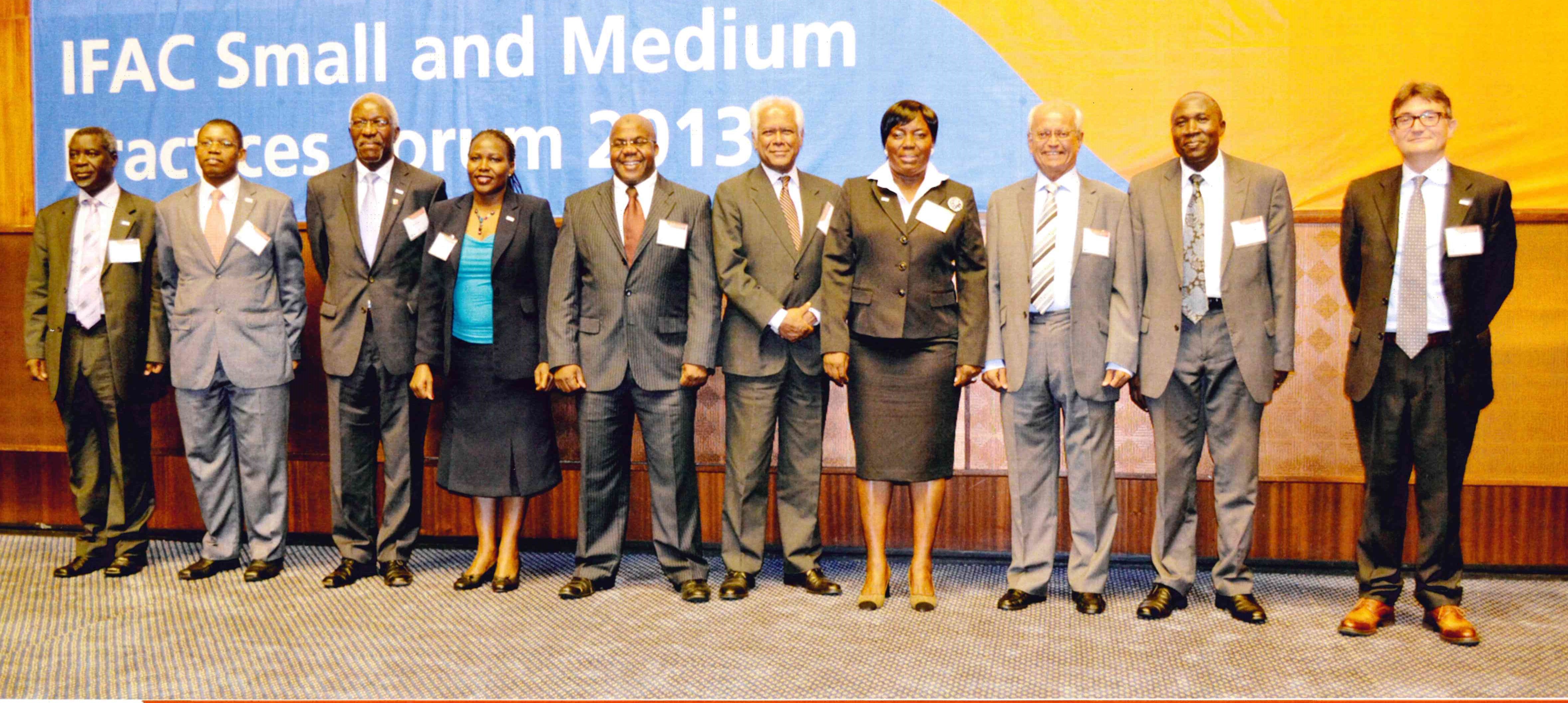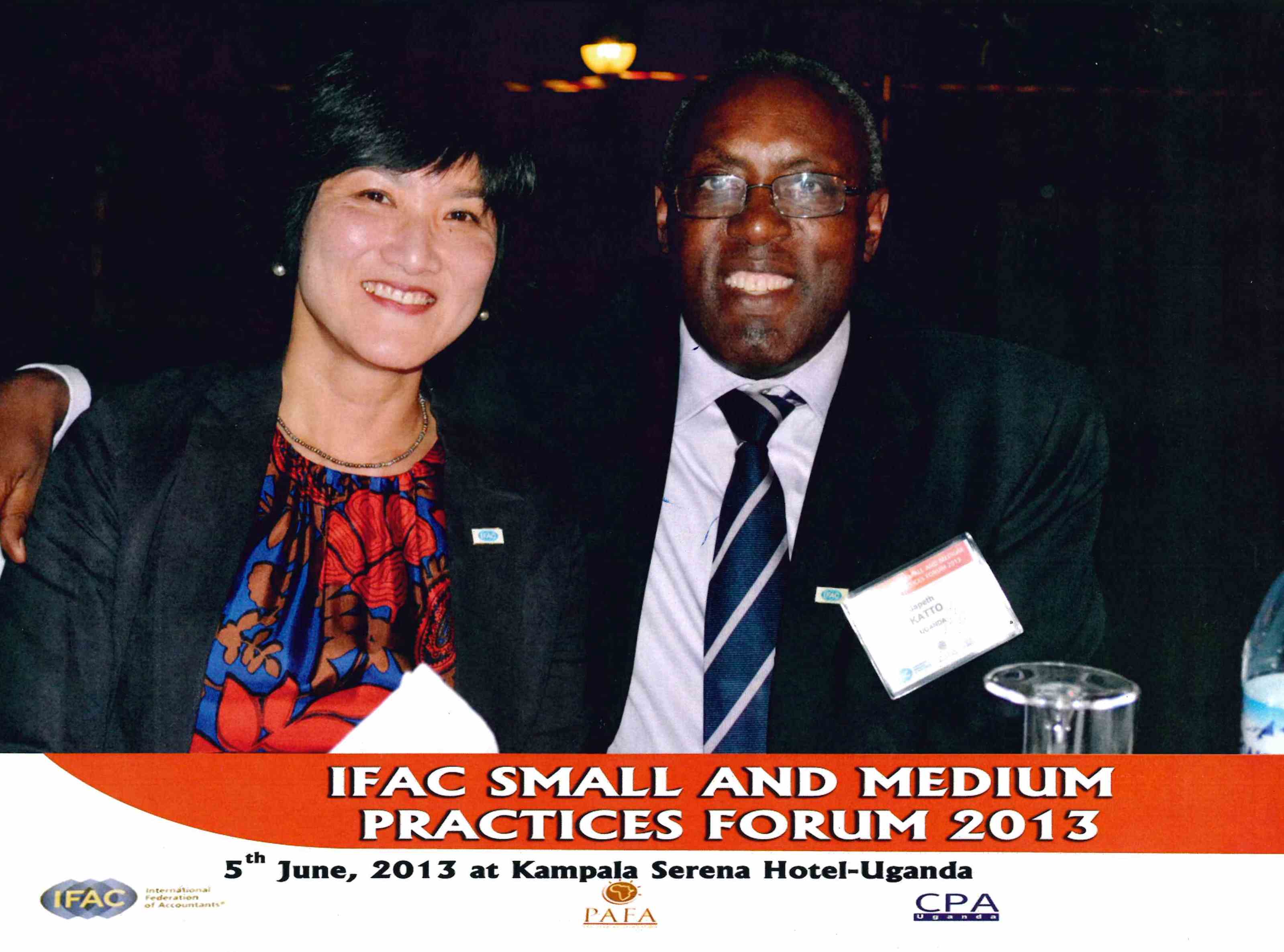Welcome to this Special Edition of eNews—The Role of Professional Accountants in the Sustainability of Small Businesses.
In This Issue:
- Introduction
- Reporting and Assurance
- Guidance and Support Tools
- Surveys and Reports
- Events and Presentations
- Awards
- Next Steps
1. Introduction
IFAC’s member organizations are increasingly developing activities that specifically address small- and medium-sized entities (SMEs), sustainability, and the role of accountants. This special edition of eNews highlights these activities to facilitate information sharing, and to promote how professional accountants can work with SMEs to improve their environmental, social, and governance (ESG) performance.
There is an opportunity for accountants working in small- and medium-sized practices (SMPs) to respond and provide sustainability advice and guidance to their SME clients. Professional accountants working in SMEs also have a critical role to play in embedding sustainability into the business strategy and practices of their employers.
A good starting point for organizations is to do more with less. Accountants can advise on the benefits of reducing energy costs and pollution, from simple behavioral changes aimed at eliminating waste, to investment in new equipment and alternate sources of energy, to developing an environmental management system. Accountants can also assist with the preparation of sustainability and integrated reports and the provision of assurance thereon.
SMEs are crucially important to the health, stability, and sustainability of the global economy: they account for the majority of private sector gross domestic product (GDP), wealth and employment creation, and social and environmental impacts. Today, they are starting to face pressure to measure and reduce outputs that negatively affect the environment and society. The good news is that studies are finding that initiatives that help SMEs reduce their carbon footprint also help improve their bottom line. SMEs of all kinds—for profits and not for profits, public or private, across all industrial sectors—stand to yield significant benefits from adopting sustainable business practices and their accountants can help.
2. Reporting and Assurance
- For the years 2011-2012, the Association of Chartered Certified Accountants (ACCA) issued its first integrated annual report, which follows the initial approach set out by the International Integrated Reporting Council (IIRC) in their Pilot Programme (see below for additional information on the IIRC).
Prior to the United Nations Conference on Sustainable Development (Rio+20) in June 2012, the ACCA also released Making a Difference at Rio+20, advocating for theinclusion in the final conference outcome document of a call for the integration of sustainability information into corporate reports (from companies of any size). See also the final document from the conference.
- The CPA Australia 2011 Annual Report combines CPA Australia’s annual and sustainability reports, which reflects its “journey towards an integrated report.” The report also benchmarks performance against the Global Reporting Initiatives’ G3.0 Guidelines and sustainability indicators. The report highlights CPA Australia’s activities related to thought leadership, carbon emissions, human resources, governance, and community involvement.
- The IIRC is developing the Integrated Reporting Framework, a new approach to corporate reporting that demonstrates the linkages between an organization’s strategy, governance, and financial performance and the social, environmental, and economic context in which it operates.
In 2011, the IIRC released the Discussion Paper, Towards Integrated Reporting—Communicating Value in the 21st Century. The IIRC received comment letters from more than 200 respondents, including the IFAC Small and Medium Practices (SMP) and Professional Accountants in Business (PAIB) Committees. See additional submissions on the IIRC website.
IFAC’s President Göran Tidström is a member of the IIRC and IFAC Chief Executive Officer Ian Ball is the chairman of the IIRC’s Working Group. Additionally, IFAC provides staff support for the development of the integrated reporting framework.
In July 2012, the IIRC released its Draft Outline of the Framework and plans to launch a prototype later in 2012, a Draft Framework in early- to mid-2013, and a “version 1.0” of the Framework in late 2013. Mr. Ball recently gave an update on the work of the IIRC, which is available on the IFAC website in the News & Events section.
The ACCA, the Chartered Institute of Management Accountants (CIMA), and the Consiglio Nazionale dei Dottori Commercialisti e degli Esperti Contabili (CNDCEC) are participating in IIRC’s Pilot Programme to test the building blocks of the Framework and inform its development and application.
- The International Auditing and Assurance Standards Board (IAASB) has released the International Standard on Assurance Engagements (ISAE) 3410, Assurance Engagements on Greenhouse Gas (GHG) Statements, to ensure high-quality assurance reviews for those organizations that release GHG statements. The standard covers reasonable and limited assurance engagements and is designed to help foster public confidence in assured greenhouse gas emissions information. The ISAE has been drafted such that it can be applied in a manner proportionate to the size of complexity of the entity. It is therefore applicable in various contexts, from emissions from a single office to emissions from complex physical or chemical processes at several facilities across a supply chain. See the At a Glance summary for more information.
- In 2011, the South African Institute of Chartered Accountants (SAICA) published its first integrated annual report, using the guidelines in the discussion paper released by the (South African) Integrated Reporting Committee. SAICA has also created a dedicated website for sustainability issues: www.sustainabilitysa.org. The website contains information on integrated reporting and sustainability for both South Africa and the global community.
3. Guidance and Support Tools
- The article The Role of SMPs in Greening Small Business, written by Sylvie Voghel, then chair of the IFAC SMP Committee, and Paul Thompson, IFAC deputy director, SME and SMP Affairs, presents the arguments, both environmental and financial, in favor of SMPs implementing “green” policies and initiatives within their own organizations. The article also explores sustainability advisory as an emerging service area for SMPs.
- The IFAC Sustainability Framework 2.0, published by the IFAC PAIB Committee, is a tool for accountants around the world to accomplish the integration of sustainability within their organization from three perspectives: strategy, operations, and reporting. Through key considerations developed from examples and opinions from entities of all sizes, from major international corporations to smaller firms, and leaders from around the world, the Framework provides a comprehensive global view of some of the current best practices in each of these areas.
- The PAIB Committee also published Investor Demand for Environmental, Social, and Governance Disclosures: Implications for Professional Accountants in Business earlier in 2012 to consider the current trends in investor demand for and use of ESG information, and make recommendations on how professional accountants can better support their organizations in responding to these demands. The report includes a sector-neutral list of the most commonly used core performance indicators, which are of use for professional accountants working with organizations.
- The ACCA’s The ABC of CSR for Small and Medium Enterprises provides guidance on how businesses “can voluntarily engage with key stakeholders to determine how to ‘do good while doing good business.’” It breaks corporate social responsibility (CSR) down into plain English and basic categories that can help businesses assess what they do and make sense of CSR from a holistic perspective. It focuses on four key areas that are likely to be important to businesses: employees, environment, community, and the supply chain. The guidance includes definitions of key terms, real-life case studies and an explanation of the what, why, and how of CSR for small businesses.
- In 2011, the AICPA, the Canadian Institute of Chartered Accountants, and CIMA issued a joint report discussing how SMEs can profit from sustainability and the growing emphasis SMEs are putting on sustainability. SMEs Set Their Sights on Sustainability uses case studies from Canada, the UK, and the US to illustrate how smaller companies are using sustainability issues to their advantage and taking various approaches to core issues.
- The Institute of Chartered Accountants in England and Wales (ICAEW)’s Business Sustainability Program earlier in 2012 to consider the current trends in investor demand for and use of ESG information, and make recommendations on how professional accountants can better support their organizations in responding to these demands. The report includes a sector-neutral list of the most commonly used core performance indicators, which are of use for professional accountants working with organizations.
- The Institute of Chartered Accountants in Australia (ICAA) developed a series of case studies that highlight five businesses and their initiatives to integrate sustainable business practices at their organizations. Integrating Sustainability into Business Practices: A Case Study Approach features companies of varying size, industry, and structure and includes tips to help business leaders get involved. For the organizations examined, moving toward a more sustainable business has yielded both environmental and financial gains.
- With financial support from the Swedish Transport Administration, the Swedish Energy Agency, the Swedish Environmental Protection Agency, and the Swedish region Västra Götaland, Swedish professional accountancy organization FAR has developed a set of tools known as MER (Miljö Engagerad Revisor, or Environmentally Committed Accountant). The tools strive to help accountants work with their SME clients to assess the environmental and financial status of the business’s operations. MER was featured in a FEE paper promoting the tools as a good practice example in March 2010. To access the tools in English, see the MER website.
- Nederlandse Beroepsorganisatie van Accountants has published Corporate Social Responsibility: CSR for SME Accountants, designed to provide practical guidance to professional accountants working with SMEs get started in CSR. The brochure explores a number of different aspects of CSR and its importance for SMEs and the professional accountants that work with them. Most significantly, it examines how an SME and its accountant can get involved in CSR and what roles the accountant can play.
4. Surveys and Reports
- Published in July 2012, the ACCA’s Environmental Aspects of Sustainability, SMEs, and the Role of the Accountant, investigates the intersection between these issues. Building on previous research on the role of SMPs as SME advisors, the study was conducted via 14 interviews with practicing accountants, SME representatives, and environmental consultations.
The research found that SMPs are not generally providing sustainability advice due to limited resources and their lack of knowledge and confidence to apply their accounting skills in this area. In addition, the current sustainability advice provided by SMPs is largely informal in nature, pertaining mostly to cost-reduction opportunities, such as energy consumption and transport costs.
- The Comité de Integración Latino Europa-América (CILEA) conducted a survey from October 2011 to February 2012 on social and environmental reporting in Latin American and Latin European countries. The objective of the survey was to determine what types of social and environmental information is currently being reported in the participating countries, what the requirements are in those jurisdictions, and what the benefits are of reporting such information. The survey results include an indication of which mandatory requirements are applicable to SMEs. Twelve professional organizations participated in the survey, including several IFAC member bodies. For the complete results, see Resultados de la Encuesta Sobre Balance Social.
- Released by the Fédération des Experts Comptables Européens (FEE) in January 2010, the policy statement Small and Sustainable: Opportunities for SMEs calls for professional accounting practices to contribute to sustainable thinking in SMEs by developing sustainable products and services for their small business clients. The statement is part of a series of policy statements released by FEE on core issues related to sustainability and the accountancy profession.
- ICAEW published Sustainability Assurance: Your Choice in 2010, which outlines the intersection between sustainability and assurance services and what is distinct about the assurance service available from a professional accountant in public practice. The booklet also includes a listing of who makes use of sustainability information, why they want assurance, and the types of services a professional accountant can provide.
The ICAEW’s 2004 report Sustainability: The Role of Accountants, reprinted in 2011, and describes ways in which information supports mechanisms used to promote sustainable development and the challenges and opportunities that these present for professional accountants in business and in practice. An Executive Summary and Abstract of the report are also available.
- In September 2012, the ICAA published a business briefing on building and implementing a sustainability plan to help Chartered Accountants and other financial professionals assess the sustainability of their businesses. Twenty key issues relevant to implementing a new strategic approach to sustainability in a corporate context, the issues are divided into four key areas: building sustainability into your strategy; implementing the strategy; embedding sustainability into core business processes; and creating value through reporting.
5. Events and Presentations
- In response to growing interest in the environmental footprint of SMEs, ACCA held a roundtable, SMEs and SMPs on the Road to Sustainability: Opportunities and Barriers, to discuss trends, challenges, and opportunities shaping the sustainability and CSR agenda for SMEs and SMPs in December 2010.
- The Hong Kong Institute of Certified Public Accountants’ professional development events for members in 2012 cover corporate environmental management; environmental, social and governance (ESG) reporting; and becoming a sustainable company.
- The South African Institute of Professional Accountants (SAIPA) held its National Conference, Accounting as a Catalyst for Change, on building and implementing a sustainability plan to help Chartered Accountants and other financial professionals assess the sustainability of their businesses. Twenty key issues relevant to implementing a new strategic approach to sustainability in a corporate context, the issues are divided into four key areas: building sustainability into your strategy; implementing the strategy; embedding sustainability into core business processes; and creating value through reporting.
6. Awards
- The ACCA sponsors the annual Sustainability Reporting Awards, which recognize companies for excellence in ESG reporting, with an emphasis on innovative ways to communicate performance and transparency. The awards only comment on transparency and reporting standards. Previous winners have included multinational corporations and SMEs, such as REAP and Traidcraft. ACCA has been sponsoring the awards program for more than ten years.
- CPA Australia's Global Research Perspectives Program, an annual research grant program for research of relevance to CPA Australia’s members, the accountancy profession, and the global business community as a whole, includes sustainability and integrated reporting as an eligible category. Research in this area should link internal sustainability-based performance to external reporting and seek to explore how accounting practices should adapt or develop to contend with changing expectations of the responsibility, scope, and impact of business. Previously selected research included the influence and impact of sustainability on capital investment decisions and applying sustainability reporting to product focus.
- The Hong Kong Institute of Certfied Public Accountants’ annual Best Corporate Governance Disclosure Awards includes an award for performance in sustainability and corporate social responsibility reporting and a category for listed companies of mid-small market capitalization. Information about the 2012 awards is available on the Institute’s website.
- Winners of the inaugural Finance for the Future Awards were announced in June 2012. The ICAEW, The Prince’s Accounting for Sustainability Project, and NatWest launched the new awards program to promote sustainability in business in the UK. With six categories ranging from start-ups to established major corporations, including not-for-profit, public sector, and small business organizations, the Awards help raise awareness of organizations that have shown how the finance function has driven or had a significant role in embedding and measuring sustainable performance. ICAEW also recently launched a series of new videos and website dedicated to encouraging sustainability in business—Just Good Business.
7. Next Steps
Join us on LinkedIn! As evidenced in this newsletter, IFAC member bodies are ramping up efforts to support accountants in this area, but there may be scope for the profession to do even more to position and equip professional accountants as sustainability advisors.
Please join us in the IFAC group on LinkedIn to share your thoughts on how professional accountants in business and in practice, especially SMPs:
- can further support their organizations in strengthening and facilitating sustainable practices; and
- provide high-quality sustainability advice to SMEs
We are also interested in learning what else member bodies are doing to support their SMP members in sustainability accounting, reporting, and advising.
IFAC and the SMP and PAIB Committees look forward to hearing from you.
Note: IFAC has reported on the member body activities related to SMPs/SMEs and sustainability of which it was aware. If you feel that your organization has an activity that should have been included, please email communications@ifac.org so that we may include it in any subsequent editions of this newsletter.




